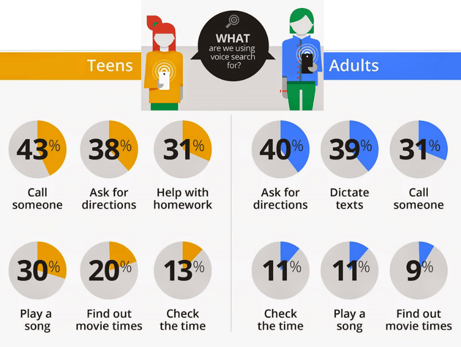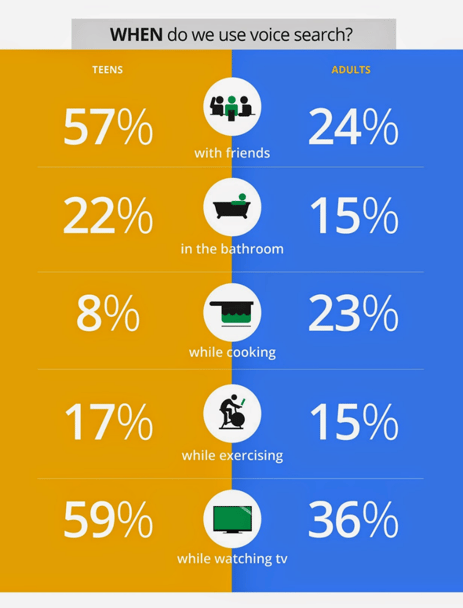Voice search is a speech recognition technology that allows users to search by saying terms aloud rather than typing. According to Behshad Behzadi, Principal Engineer at Google Zurich, “Voice search is the fastest growing type of search.” So from a marketer's perspective the question must be, "how does voice search impact SEO efforts? To learn 5 tips for SEO success, read on.
In 2014, voice represented 0% of total search volume, though by 2016, voice represented 20% of total search volume. Flash forward to 2020, and ComScore estimates 50% of total search volume will be from voice. Today, 55% of teens and 41% of adults utilize voice search on a daily basis.

What is the difference between traditional search and voice search queries?
While traditional searches are made up of short-tailed keyword terms that are 2-3 words in length, most voice searches consist of long-tailed keyword terms and the search length is generally twice as long. Voice searches reflect more conversational, natural language and are action-based.
Traditional search vs. voice examples

Top 5 tips for success in voice search
(1) Search like a customer
First ask yourself, “What would a potential customer search for?” You’ll want to understand the results that your searches return as well as review which sites return relevant content. Remember that natural language is used in voice search—prepare for that. Also review search traffic reports and leverage learning to refine SEO and content.
(2) Use a conversational tone
As content remains king in voice search, you’ll want to develop a targeted content strategy. Content developed should use a conversational tone.
(3) Follow best practices
Follow best practices to design your site for success. Use Schema.org code markup, H1 tags, and solid URLs. Rather than linking to images, include actual data.
(4) Create a FAQ page
The content you put on your FAQ page should answer action-based queries. Use terms such as “what,” “who,” and “why,” which indicate the general interest a potential customer would use in their search. Using, “How do you,” indicates a specific interest, whereas, “when is” is indicative of a major event or holiday. Finally, use “where can I find,” on your FAQ page which indicates purchase intent.
(5) Keep abreast of emerging technology
Digital Assistants are becoming more sophisticated. It’s important to keep up with the latest tech advances and know how changes effect voice search.
Here's a quick rundown of what, when, and how people are utilizing voice search.


Additional Reads:





